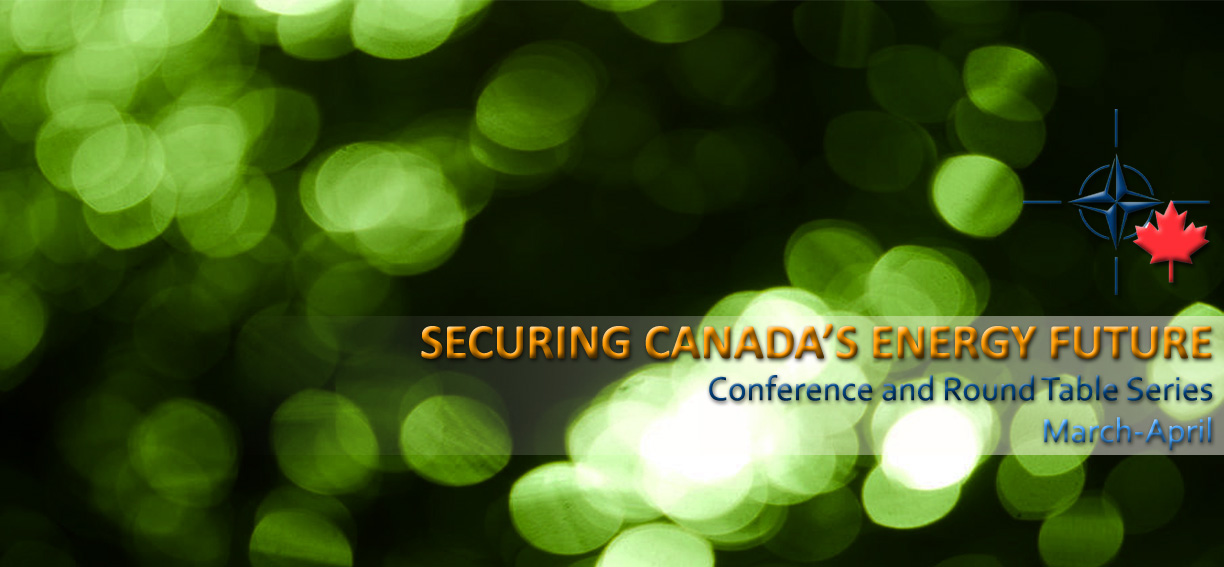The 2013 Spring Conference: Securing Canada’s Energy Future, hosted by the NATO Council of Canada featured a number of panel discussions with government officials, industry representatives, military personnel and academics. The discussions ranged in topic and scope, covering issues of environmental impact, exploration and sustainable development, as well as reviewing Canada’s market presence and energy investments.
One of the main themes of the panelists’ commentary was that Canadian society depends on its diverse energy resources to function. Securing the processes through which energy is produced, delivered and consumed is of paramount importance. Many countries, Norway in particular, view the primary goal of energy security to be securing a reliable supply while meeting particular environmental standards. In the case of Canada, a country rich in energy resources, energy security is a more complex concept.
The Alberta oil sands are considered a land locked market plagued by issues of transportation and bottle necking, which have impeded the industry’s development and depressed Canadian resource values. Getting Canadian oil out of Western Canada has proven to be challenging. With aging pipelines overflowing, some industry partners have turned to shipping by rail. However, this is far riskier and less economical than developing a new pipeline. Rail cars derail frequently, the trains and tracks are subject to weather conditions, and track maintenance has caused diversions and late delivery. The bad press given to pipeline development is entire misplaced. Given the technological advancement, it is currently the safest way to transport Canadian oil to our primary market to the South. There is a pressing need for Canada to develop transport infrastructure, and with it secure its own market presence, instead of being subjected to grossly depressed prices per barrel that are hurting Canadian industry.[captionpix align=”right” theme=”elegant” width=”320″ imgsrc=”http://natoassociation.ca/wp-content/uploads/2013/04/july7cdnenergy.jpg”]
Although Canada is currently energy secure, its position as both an importer and exporter of energy within the global market requires the federal government to take a more active stance, beyond the political partisan debates in the House of Commons. Canada requires a national energy strategy to deal with not only defining what energy security means, but also to deal with a number of emerging dynamic forces, such a infrastructure development and movement of resources. Due to Canada’s deeply integrated position in the global energy market, a national energy strategy will serve to protect the Canadian market from unanticipated supply disruptions, even if in some cases this means having to pay a little extra for our gas to ensure consistent reserves. After all, we are currently importing just over half a million barrels a day and paying record high prices at the pumps due the instability of the suppliers.
Market volatility, environmental uncertainty and to some degree security threats, in particular surrounding pipeline investments and infrastructure, all serve to undermine Canada’s currently secure position. What’s more, the future energy relationship between Canada and the US will be significantly impacted as the US becomes more energy independent due to rich shale gas reserves, and the Keystone XL pipeline deal still awaits US approval. Canada must also consider what potential role Mexico will play in this relationship and if Mexico will serve to be a direct competitor for the US market. It is unlikely, but if Mexico opens up to foreign investment it will receive the surge in capital the state requires. As this process is expected to be overly politicized, Mexico stands to become a net importer of oil; this in turn could only serve to be profitable for Canada in the long run.
As trends change, it is in the best interest of the federal government to form a private-public partnership in areas of research and development (R&D). Industry partners and stakeholders are already investing a great deal in R&D. Much of the spending goes towards reinvesting in Canada’s academic capital and the scientific community. It is far more advantageous for the natural resource industry to invest in more R&D as opposed to drilling for exploration wells, which carry the obvious risks. Spending the money on R&D is an easy trade off the oil sands, one the Canadian government needs to be more engaged in.
From this private-public partnership policymakers, industry experts and academics will be able to compose forward thinking strategies and observe component parts of the Canadian energy sector in order to regulate environmental protection and practices, risk management of resource extraction and ensure effective regulations are in place. This is necessary not merely within the scope of political theatre for another committee to be formed in the public interest, but also within the energy industry’s public relations campaign. This partnership design will continue to ensure the secure energy flows upon which Canadian society depends on, by serving to directly or indirectly aid Canada’s government to maneuver through the changing economic and geopolitical landscape.




